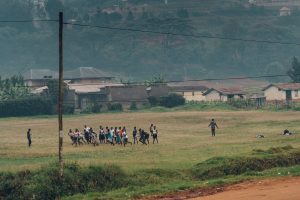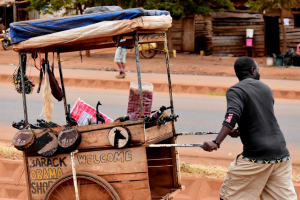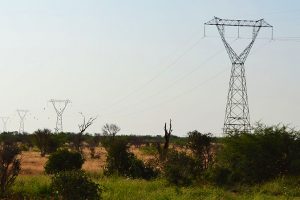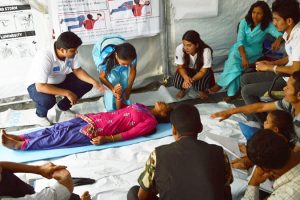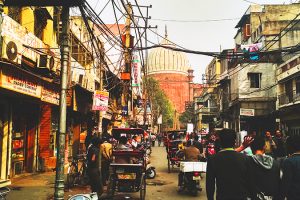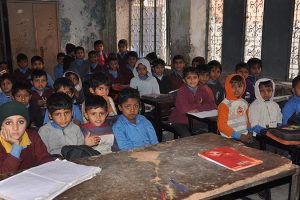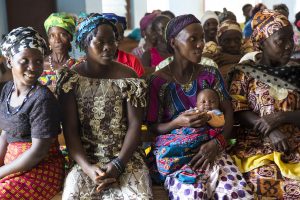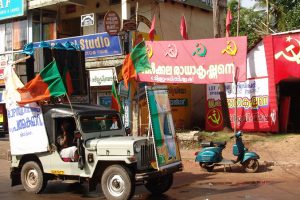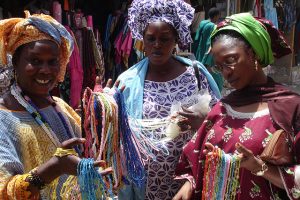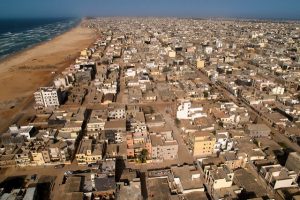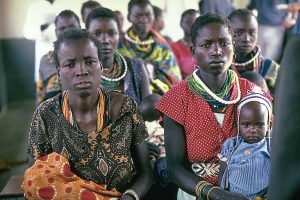State Institutions
Institutional Diagnostic Synthesis
The Institutional Diagnostic synthesis is the culmination of the research undertaken in the four EDI case studies in Bangladesh, Benin, Mozambique and Tanzania. The synthesis also reflects on two historical case studies – Taiwan and South Korea – and describes…
Relaxing Credit Constraints and Tenure Insecurity in Imperfect Markets
Issue: The 2013 World Bank report “Securing Africa’s Land for Shared Prosperity” states that more than 90 percent of Africa’s rural land is undocumented, making it vulnerable to corruption, land grabbing and expropriation. Helping citizens better secure property and land titles…
Using Digital Trails to Improve Management and Accountability for Public Service Delivery
Issue: Delays in receiving wage payments reduce poor rural households’ ability to manage economic uncertainty and meet their subsistence needs. This is a particularly dire concern for the 50 million impoverished rural households who rely on the payments from India’s…
Randomized Inspections and Information Campaigns
Randomized Inspections and Information Campaigns: Impact on Compliance to the use of Electronic Fiscal Devices (EFDs) in Tanzania Issue: Governments across East Africa mandate that businesses use electronic fiscal devices (EFDs) to increase VAT tax compliance. These devices directly transmit…
Teacher rotation and student outcomes: Experimental evidence from Uganda
Focus of the study Can formal and informal institutions be leveraged to build human capital? Uganda’s education system is plagued by low personnel morale, low engagement and high absenteeism (estimated at 27%) among teachers. We propose to transform state-mandated transfers…
Gangs of Medellin: variation in non-state provision of order and justice
Issue Urban armed groups, especially criminal gangs, are a growing threat to peace and economic growth in cities across the world, and often exert state-like powers such as enforcing contracts, policing, and taxing businesses. Gangs, mafias, and urban militias have…
The Political Economy and Governance of Rural Electrification
Issue: Many developing country governments lack the capacity to directly implement large infrastructure and service delivery projects, instead hiring private contractors to perform public sector responsibilities: at 14.5% of GDP, low-income countries have the highest share of public procurement in…
The strategic game between autocratic power, the military and the clerics
Focus of the study The purpose of this project is to develop a theoretical model that captures the interactions between civic, military and religious powers in the context of weakly institutionalized societies characterized by a high degree of religiosity. Our…
Judicial independence in Pakistan
Focus of the study Judicial independence from state bureaucracies is considered critical for the stability of institutions and for ensuring the rule of law. As such, judicial independence is crucially important for understanding the development process. Our primary aim in…
Social structures, political accountability, and effective public goods provision
Focus of the study This project explores the extent to which age sets, a traditional social structure in many African societies, can be leveraged to improve local oversight, governance, and the provision of public goods. Age sets are initiation rituals…
Combatting caste- and gender-based discrimination in the healthcare and education sector
Customizing incentives to combat caste- and gender-based discrimination in the healthcare and education sector (Nepal and India) Focus of the study Inequities in access as well as quality of healthcare and education are a major challenge facing developing economies. Anecdotal…
Stock-based versus flow-based redistribution (Zimbabwe and South Africa)
Focus of the study Our key research question is: How can a political and economic equilibrium be changed so that the economy embarks on a new development path that is not derailed irrespective of who governs? This question is important…
Training for productivity: An experimental evaluation of civil service reform in Ghana
Focus of the study Our central research question is: “Does training bureaucrats in productivity techniques improve management and productivity in Ghana’s Civil Service?” This project aims to improve the Ghanaian Civil Service’s productivity by designing, implementing and evaluating novel individual…
Community networks and industrial entrepreneurship in India and China
Focus of the study This case study focuses on the role of community networks in early industrialization in pre-Independence India and in contemporary China. Our research is based on panel data collected on individual entrepreneurs and firms, which includes information…
Improving property tax collection in South Delhi
Improving property tax collection in South Delhi: Reducing property owner and monitor incentives to misreport Issue: Increasing tax revenue can improve the ability of public institutions to finance services for citizens. However, a fundamental constraint common in developing countries is…
Monitoring the Performance of Agents in Public Service Delivery
Issue: India’s state-run electricity distribution companies (discoms) often lose up to half of the power they are supposed to supply to customers to theft, losses and non-payment. Despite these inefficiencies and corruption, electricity distribution cannot be wholly privatized to improve…
Beyond the Paycheck – Motivational tools for public school teachers
Issue: The performance of frontline public sector workers is a significant problem in developing countries where low attendance and effort limit the value of service delivery, thereby diminishing well-being and economic development. Poor performance of public school teachers remains a…
Performance-Based Incentives in Multi-Layered Organizations
Performance-Based Incentives in Multi-Layered Organizations: Evidence from Sierra Leonean Community Health Workers Issue: Access to adequate healthcare remains a key challenge in many developing countries. This is particularly true in rural villages of Sierra Leone, where access to health facilities…
Training Politicians to Better Serve
Issue: India, a developing country with a strong and vibrant democracy, exhibits many elements of weak institutions and associated problems of ineffective governance. Both state and national legislatures are characterized by high levels of corruption, criminality, and poor performance. At…
Audit Selection under Weak Fiscal Capacity
Issue: Well-targeted tax audits are critical to deter tax evasion. In many advanced economies, the selection of which firm to audit is based on risk-based analysis systems. This require high levels of fiscal capacity to obtain the data, manage and…
Who is Bogus? Catching Fraudulent Firms in Delhi
Issue: A common VAT tax evasion strategy in low compliance environments involves fraudulent “paper” firms that allow other firms to reduce their tax liabilities. Identifying these fraudulent firms can potentially help recover lost tax revenue, but locating them is a problem for…
Measuring the Effect of Technological Improvements and Compliance Nudges on Property Taxes
Evidence from a field experiment in Senegal Issue: Rapid urbanization and the growth of real estate developments in low-income countries has increased the potential of property tax as a source of untapped domestic resource mobilization. Unfortunately, in most developing countries, property tax…
Constructing Compliance: Reducing Tax Evasion Among Market Traders in Ghana
Issue: The taxes and licenses required for traders to operate in local markets are some of the most commonly used state revenue collection instruments in Sub-Saharan Africa. However, businesses frequently evade these levies, choosing to operate in the informal economy….
Can Transparency Improve Preferences and Norms in the Public Sector?
Issue: Political norms and citizen preferences could be key enablers of the poor quality of public services in developing countries. Politicians may, for example, deprioritize public service delivery improvements because citizens prefer elected officials that offer them private benefits, including government jobs or…
Recruitment, Effort, and Retention Effects of Performance Contracts for Civil Servants
Drawing on experimental evidence from Rwanda primary schools Issue: Skilled and intrinsically motivated public sector employees are critical to state capacity and the provision of key services, including education. Yet the capability to recruit, motivate, and retain this profile of civil servants…
Institutional Reform and de facto Women’s Rights
Issue: In many socially-conservative settings, legal protections and provisions have frequently outpaced how administrators enforce these rules. In Pakistan, for example, government officials often use their own judgement and respond to local concerns when carrying out functions critical to women’s rights, including…
Community Policing and Public Trust: A Field Experiment in Uganda
Issue: Use of excessive force has diminished trust between citizens and law enforcement in many parts of Uganda. In an effort to improve this dynamic, the state is revisiting a “homegrown” model of community-policing that increases police presence through local patrols and community…
Community Policing and Public Trust: A Field Experiment in Colombia
Issue: Medellín, Colombia is a metropolitan area of more than 3.7 million people, and a place with long history of violence, pressing threats to citizen security, and improving—but still fragile—police-community relations. Lack of trust in the police and the consequent lack of…
Reforming Police Practices in India
Issue: The Indian state of Madhya Pradesh’s police force has a low officer to citizen ratio with multiple vacant positions, and a lack of representation of women in their ranks. Efforts have begun to make police forces more public-oriented, but…

